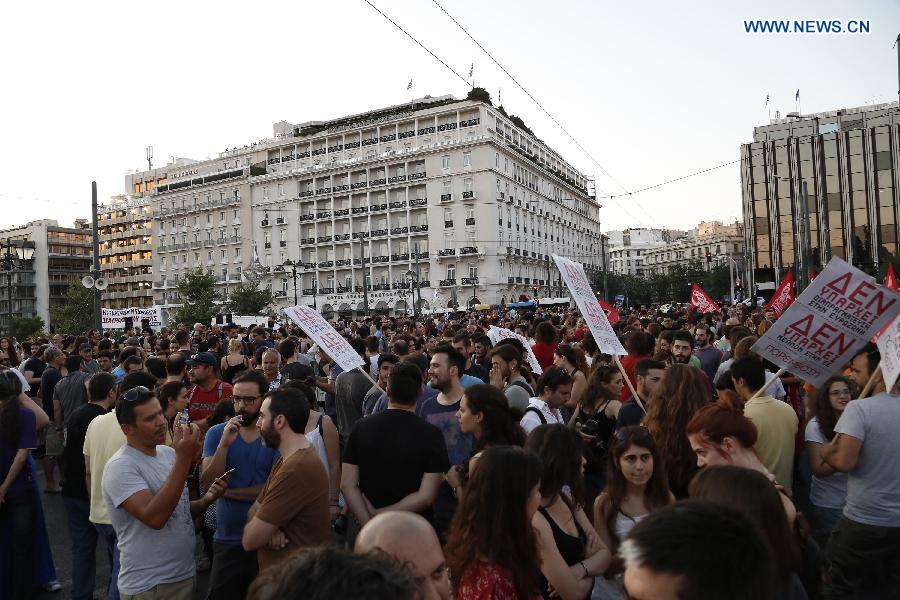-
Tips for becoming a good boxer - November 6, 2020
-
7 expert tips for making your hens night a memorable one - November 6, 2020
-
5 reasons to host your Christmas party on a cruise boat - November 6, 2020
-
What to do when you’re charged with a crime - November 6, 2020
-
Should you get one or multiple dogs? Here’s all you need to know - November 3, 2020
-
A Guide: How to Build Your Very Own Magic Mirror - February 14, 2019
-
Our Top Inspirational Baseball Stars - November 24, 2018
-
Five Tech Tools That Will Help You Turn Your Blog into a Business - November 24, 2018
-
How to Indulge on Vacation without Expanding Your Waist - November 9, 2018
-
5 Strategies for Businesses to Appeal to Today’s Increasingly Mobile-Crazed Customers - November 9, 2018
Violent protests erupt in Athens as lawmakers consider bailout plan
Greece’s members of parliament voted Wednesday to approve economic reforms demanded by its global creditors to unlock $96 billion in bailout financing.
Advertisement
Greek Prime Minister Alexis Tsipras is facing an uprising from members of his own Syriza party over the austerity plans, with about 30 of the 162 Syriza lawmakers in the 300-member parliament voicing objections.
Greece’s lawmakers need to ratify the legislation in order to formally re-start talks over a new bail-out deal worth euros 86bn with its creditors.
Many Greeks resent that European lenders are imposing such harsh, strict reforms on their pension and tax systems.
Thirty-eight lawmakers from Syriza abstained or voted against the government, including former Finance Minister Yanis Varoufakis and the current Energy Minister Panagiotis Lafazanis, according to Reuters.
As debate continued beyond a 10pm GMT deadline (10am NZST) ahead of the vote, protesters threw petrol bombs at police during an anti-austerity protest close to parliament.
The European Central Bank has been keeping Greek banks afloat with emergency liquidity, but it could be forced to cut off that aid if Greece misses a huge debt repayment due on Monday.
“Now I think that things will turn out for the best, as long as those in power can act with good intentions, without corruption”, said pensioner Giannis Filinis as he waited in a queue outside a bank to withdraw the maximum 120 euros for retirees without bank cards.
European governments are meanwhile divided over options to help Greece meet its short-term cash needs while it waits for the eurozone bailout deal to be finalised, which will likely take at least four weeks.
Mr Tsipras won the vote by 229 votes to 64, with the support of some opposition MPs.
“Today, Parliament took the first important step for the deal, voting for the hard measures”, government spokesman Gabriel Sakellaridis said.
In a letter she sent to Tsipras on Monday and released by the finance ministry Wednesday, Valavani said she believed “dominant circles in Germany” were intent on “the full humiliation of the government and the country”.
Even if Athens carries out austerity programme it still won’t be able to pay back billions of Euros.
The ministers were expected to discuss a three-month €7.0 billion bridging loan for Greece through an EU-wide crisis fund to hold Athens over until its new bailout is ratified.
Later, anti-establishment protesters clashed with police who responded with tear gas, sending hundreds of people fleeing in central Syntagma Square.
The speaker of the Parliament described what had been put upon Greece as a “crime against humanity” – a “social genocide”.
Advertisement
Greece’s economy has shrunk by 25 percent in the last five years amid austerity measures designed to curtail its ballooning public sector debt.





























